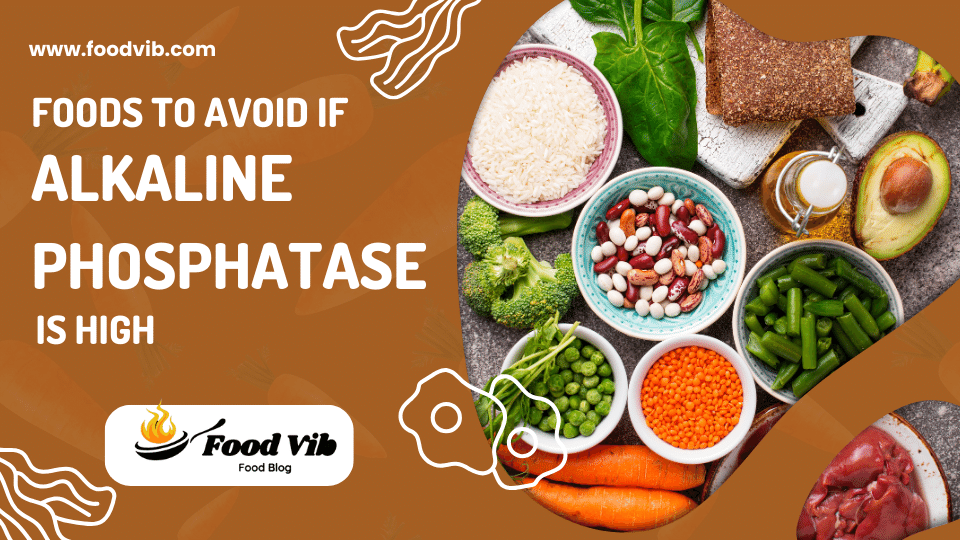Foods That Cause Diarrhea With Metformin

For persons using metformin, a regularly recommended medicine for controlling type 2 diabetes, food choices may greatly affect gastrointestinal symptoms, including diarrhea. While metformin is typically well-tolerated, certain meals and drinks may increase gastrointestinal side effects, such as diarrhea, gas, and bloating. Understanding which meals to avoid might help folks reduce pain and maintain adherence to their prescription regimen. By adopting smart food choices, people may better control their diabetes while lowering the risk of gastrointestinal issues associated with metformin medication.

Foods That Cause Diarrhea With Metformin
A frequent gastrointestinal problem that millions of individuals experience globally is diarrhea. Even though there are many different causes of diarrhea, such as infections, food allergies, and underlying medical conditions, there is a lot of research on the connection between specific foods and diarrhea, especially in people taking Metformin, a drug that is frequently prescribed for the treatment of diabetes.
Comprehending the Impact of Metformin
One drug that is often used for the treatment of type 2 diabetes is metformin. It works by decreasing the body’s blood sugar levels, enhancing insulin sensitivity, and lowering the quantity of glucose the liver produces. Even while metformin is usually well taken, some people may have gastrointestinal adverse effects, including nausea, diarrhea, and pain in the abdomen.
Foods That Could Make Metformin-Related Diarrhea Worse
- High-Fiber meals: Although fiber is a necessary component for digestive health, eating too much of it might make diarrhea worse in people taking metformin. Examples of high-fiber meals include beans, lentils, whole grains, and certain fruits and vegetables. Fiber, particularly when taken with the gastrointestinal side effects of the medicine, might promote bowel movements and could lead to loose stools.
- Fatty items: For some people, eating a lot of fat may either cause or exacerbate diarrhea. Examples of these items include fried meals, fatty meat cuts, and rich dairy products. Particularly when combined with the gastrointestinal side effects of metformin, fat might cause bowel spasms, digestive pain, and loose stools.
- Spicy Foods: Foods high in spices like paprika and cayenne pepper, as well as chili peppers and spicy sauces, may irritate the digestive system and cause diarrhea in people who are susceptible, including those on metformin. Foods high in spice might hasten bowel motions and cause more pain in the gastrointestinal tract.
- High-Sugar Foods: Consuming significant amounts of sugar-containing foods and drinks, such as sodas, candy, sugary snacks, and sweetened beverages, may upset digestive systems and cause diarrhea. Consuming a lot of sugar might upset the natural balance of bacteria in the stomach and make those on metformin feel worse.
Taking Metformin and Managing Diarrhea
- Dietary Modifications: Changing one’s diet may help those who have diarrhea while taking Metformin by reducing symptoms. Reducing the consumption of foods heavy in fiber, fat, spice, and sugar, which may aggravate digestive problems, may be one way to do this.
- Hydration: Maintaining enough hydration is essential for controlling diarrhea and avoiding dehydration, particularly in those who have frequent bowel movements. Regaining lost fluids and electrolytes as a result of diarrhea may be facilitated by consuming plenty of water and electrolyte-rich beverages.
- Regular Monitoring: People on Metformin must keep a close eye on their symptoms and get medical attention from their doctor if they have severe or chronic diarrhea. Medical specialists may provide advice on how to manage symptoms and, if needed, can change the amount of medications.
- Probiotics: Adding foods high in probiotics to your diet, such as kefir, yogurt, sauerkraut, and kombucha, may help some people. Probiotics may lessen gastrointestinal symptoms brought on by taking metformin and aid in re-establishing the balance of the gut bacteria.
- Medication Adjustments: To lessen gastrointestinal side effects including diarrhea, medical professionals may change the dose or timing of metformin. To guarantee proper treatment, patients must notify their healthcare practitioner of any changes in their symptoms.
Although metformin is a useful drug for the treatment of type 2 diabetes, some people may have gastrointestinal adverse effects like diarrhea from it. Making educated dietary decisions and efficiently managing symptoms may be aided by knowing the connection between certain foods and diarrhea, especially while using Metformin. When using Metformin, people may improve their health by being aware of food triggers and putting symptom management techniques into practice.
Must Read: What are the Halal Dishes in the USA
Must Read: How Energy Flows in a Food Chain: A Closer look
How to Adjust Your Diet to Reduce Diarrhea with Metformin
Diarrhea is one of the main adverse effects of metformin, a medicine used to treat Type 2 diabetes and prediabetes. Even though this might be annoying, there are a few dietary changes you can do to assist manage these symptoms and make sure your medicine is still helping you.
Knowing the Reason
Metformin works by decreasing the liver’s synthesis of glucose and raising the body’s sensitivity to insulin. Additionally, this procedure may affect your gastrointestinal tract, changing the way your stomach moves and how much fluid your body absorbs, which may result in diarrhea.
Important Note: Before making any major dietary changes or adjusting your metformin dose, you must consult your doctor. Based on your particular circumstances and medical background, they may provide you with advice on the best course of action.
Dietary Modifications for Pain Relief:
Remember to Stay Hydrated
- Hydration is vital: Diarrhea brought on by metformin might cause dehydration, so it’s important to drink enough water. Even if you don’t feel thirsty, make it a goal to drink a lot of water throughout the day. Try to drink 8–10 glasses of water each day.
- Electrolyte Replenishment: If you have severe diarrhea, think about consuming electrolyte-rich liquids like sports drinks or oral rehydration treatments.
Control of Dietary Fiber
- Up your intake of soluble fiber: In addition to regulating digestion and giving feces more volume, soluble fiber may also improve consistency and lessen the frequency of diarrhea. Incorporate into your diet items such as psyllium husk, apples, bananas, carrots, and oats.
- Increase insoluble fiber consumption: Although fiber is usually good for you, some people may have worsening diarrhea due to excessive insoluble fiber, which may be found in wheat bran, nuts, seeds, and some vegetables. Keep an eye on your tolerance and modify your intake as necessary.
Must Read: What Are the Risks of Eating 5 Day Old Chinese Food?
Carefully Introduce Probiotics
Small evidence supporting probiotics: Probiotics may help treat diarrhea, according to some research, but there isn’t much data to support their efficacy when metformin causes diarrhea. Before taking any probiotic supplements, speak with your doctor since they could interfere with other prescriptions.
Triggers from Food and Drink
- Recognize and steer clear of personal triggers: Keep an eye out for certain meals and drinks that tend to make your diarrhea worse. Caffeine, dairy products, hot and fatty meals, and artificial sweeteners are a few examples of them. Dietary elimination may be used to detect these triggers.
- Reduce processed and sugary foods: Processed and sugar-filled meals may exacerbate diarrhea by upsetting the intestinal flora. When possible, choose entire, unprocessed meals.
More Frequently Occurring, Smaller Meals
- Tinier servings, more often: Consider breaking up your regular food consumption into smaller, more often meals throughout the day rather than three big ones. This may lessen diarrhea by facilitating your digestive system’s more effective meal processing.
Take Food Texture Into Account
- Foods that are simple to digest and bland: When diarrhea is acting up, give preference to simple, easy-to-digest items like bread, crackers, rice, applesauce, and bananas. Your digestive system will be less stressed by these meals.
Further Advice:
- Control your stress: Stress may make digestive problems worse, such as diarrhea. Maintain a regular eating schedule: Eating regular meals and snacks at consistent times can help regulate your digestive system and potentially reduce the occurrence of diarrhea. Practice relaxation techniques like deep breathing, yoga, or meditation to manage stress levels. You may find probable food triggers and make informed dietary modifications by keeping track of your meals and any resulting digestive problems.
- Seek expert guidance: Talk to your doctor if your diarrhea doesn’t go away or becomes worse after making these dietary changes. They may advise you to try other drugs, change the dose of your metformin, or look into other treatment alternatives.
- Step-by-step implementation: Modify your diet gradually to give your body time to acclimate and reduce any pain.
You may successfully control your diabetes or prediabetes while managing metformin-induced diarrhea by implementing these dietary changes and collaborating closely with your healthcare physician.
Must Read: 25 Foods That Make You Taste Good
10 Foods to Avoid if You’re Experiencing Diarrhea with Metformin

Diarrhea is one of the many symptoms and side effects that diabetics often have to deal with. One of the most often recommended drugs for type 2 diabetes is metformin, which sometimes causes gastrointestinal problems including diarrhea. However, you may reduce these symptoms and enhance your general quality of life by making the appropriate dietary and lifestyle modifications. This extensive article will cover 10 foods to avoid if you get diarrhea while taking metformin, as well as useful advice and other solutions for handling this frequent side effect.
Understanding Metformin-Related Diarrhea
Before discussing particular dietary advice, it’s critical to comprehend the reasons why some people have diarrhea while using metformin. Metformin lowers blood sugar levels by enhancing insulin sensitivity and decreasing the liver’s synthesis of glucose, among other methods. Although it’s a useful drug for diabetes management, some patients may have gastrointestinal side effects such as diarrhea, bloating, or pain in the abdomen.
Dietary Influence on Diarrhea
The management of diarrhea associated with Metformin usage is heavily influenced by diet. While certain meals may assist reduce pain and support digestive health, others may increase symptoms of gastrointestinal disorders. You may reduce diarrhea and enhance your general health by choosing carefully and avoiding certain triggers.
Foods to Avoid
- Foods High in Fiber: Although fiber is necessary for a healthy digestive system, too much of it might exacerbate diarrhea, particularly in those who are on metformin. Steer clear of high-fiber foods that might increase stool volume and frequency, such as beans, whole grains, and certain fruits and vegetables.
- Fatty Foods: High-fat foods may aggravate gastrointestinal problems and be more difficult to digest. Fat meals such as fried dishes, greasy snacks, and rich sweets should be avoided in favor of lighter, easier-to-digest alternatives.
- Spicy meals: Spicy meals have the potential to aggravate diarrhea by irritating the digestive tract. Steer clear of foods that have been seasoned with a lot of garlic, onions, or chili peppers since they might cause upset stomachs.
- Dairy Products: The sugar lactose, which is included in dairy products, may be difficult for some individuals with diarrhea to digest. If you’re feeling sick to your stomach, try cutting down on or staying away from dairy products including cheese, yogurt, and milk in favor of lactose-free options.
- Caffeinated Beverages: Caffeine can accelerate bowel motions and stimulate the digestive system, which may exacerbate diarrhea. Reduce the amount of caffeinated beverages you consume, such as tea, coffee, and certain sodas. Instead, choose herbal or decaffeinated teas.
- Artificial Sweeteners: Sorbitol, mannitol, and xylitol are examples of artificial sweeteners that may act as laxatives and cause diarrhea. Look for these components on food labels and choose items that have been sweetened with erythritol or stevia, which are natural alternatives.
- Raw Fruits and Vegetables: Although raw fruits and vegetables are a vital component of a balanced diet, they may be more difficult to process and may aggravate diarrhea. To make your fruits and vegetables gentler on the stomach, cook or steam them; peeled apples, cooked carrots, and bananas are good examples of softer selections.
- Carbonated Beverages: Carbonated drinks may aggravate the symptoms of diarrhea by causing bloating and gas. Carbonated beverages such as soda, sparkling water, and certain energy drinks should be avoided; instead, stick to still water or herbal teas.
- Alcohol: Drinking alcohol may cause diarrhea by irritating the digestive system and interfering with regular bowel movements. If you want to drink alcoholic beverages at all, keep your intake to a minimum and choose milder alternatives like wine or beer in moderation.
- Processed meals: The high content of sugar, salt, and artificial additives in processed meals may aggravate symptoms of diarrhea and cause gastrointestinal distress. Whenever feasible, choose complete, minimally processed meals; pay particular attention to lean meats, whole grains, and fresh vegetables.
Must Read: 10 Reasons Why Mexican Foods Make You Poop
Advice for Taking Metformin and Managing Diarrhea
Apart from steering clear of trigger meals, there are many lifestyle adjustments and hints that might assist in managing diarrhea related to Metformin use:
- Remain Hydrated: During diarrhea bouts, make sure you drink plenty of fluids, particularly water, to avoid dehydration and replenish lost electrolytes.
- Eat Smaller, Frequent Meals: To reduce diarrhea episodes and relieve digestive strain, choose smaller, more frequent meals throughout the day rather than larger ones.
- Keep a Food Diary: To help you make educated dietary decisions, keep track of your diet and symptoms. This will help you discover possible trigger foods and trends.
- Consider probiotics: Fermented foods like kefir or yogurt, as well as probiotic pills, may help improve digestive health and restore intestinal balance.
Ask Your Medical Professional: For more assessment and treatment options, speak with your healthcare professional if diarrhea continues or becomes worse.
Must Read: Best Frozen Foods For Air Fryer
Conclusion
Metformin-induced diarrhea management requires a comprehensive strategy that takes lifestyle and nutrition into account. You can better manage diarrhea and enhance your overall quality of life while managing diabetes by avoiding trigger foods, making thoughtful dietary choices, and putting useful tips for managing symptoms into practice.
Must Read: 10 Foods to Avoid While Taking Jardiance
FAQ (Frequently Asked Questions)
Can I still enjoy some of my favorite foods while on Metformin?
Yes, you may continue to enjoy your favorite meals while taking metformin, but you must watch portion limits and stay away from things that make your diarrhea worse.
Are there any supplements that can help with diarrhea caused by Metformin?
Probiotic pills, for example, may help strengthen the digestive system and lessen the symptoms of diarrhea brought on by using metformin. However, before to using any supplements, speak with your physician.
Should I stop taking Metformin if I experience diarrhea?
You must speak with your doctor before quitting any medications. They may provide advice on how to control the symptoms of diarrhea while still taking metformin.
How long does diarrhea usually last when starting Metformin?
Metformin-associated diarrhea symptoms often become better with time as the body gets used to the drug. For more assessment and treatment, speak with your healthcare professional if the diarrhea worsens or continues.
What foods to avoid while taking metformin?
It is usually advised to limit the amount of carbs and sugary foods you eat while taking metformin since they might alter blood sugar levels and possibly interfere with the drug's efficacy. Additionally, as alcohol might raise the risk of lactic acidosis when coupled with metformin, it should be avoided completely or used in moderation. It's crucial to abide by the dietary recommendations made by your doctor or nutritionist, and to seek their counsel for tailored recommendations based on your particular medical requirements.
what to eat for breakfast while taking metformin?
To help stabilize blood sugar levels while taking metformin, it's helpful to have a balanced breakfast that consists of a mix of protein, healthy fats, and complex carbs. Among the appropriate breakfast choices while taking metformin are:
1. Eggs: Eggs are a fantastic source of protein and important nutrients. They may be poached, cooked, or scrambled. To add more fiber and vitamins, pair them with veggies like spinach, tomatoes, or peppers.
2. Greek yogurt: Go for plain Greek yogurt, which has less sugar and is high in protein. For added taste and benefits, mix with some berries or a sprinkling of almonds.
3. Oatmeal: For a filling breakfast choice, choose steel-cut or traditional rolled oats. For extra texture and taste, sprinkle some fruit, nuts, and seeds over top.
4. Whole-grain bread: For a filling and well-balanced breakfast, try whole-grain toast topped with avocado, nut butter, or a piece of lean protein, such as chicken or turkey.
5. Smoothies: For a nutrient-dense, portable breakfast, blend leafy greens, berries, a source of protein (such as Greek yogurt or protein powder), and a healthy fat (such as avocado or nut butter).
While taking metformin, keep an eye on your portion sizes and strive for a well-rounded meal to maintain your general health. It's also critical to abide by any dietary advice given to you by a dietician or healthcare professional.
how to stop metformin diarrhea?
There are a few actions you may do to assist reduce the adverse effect of diarrhea if you're taking metformin:
- Gradual Increase: Your body may respond to a lower dosage of metformin initially, which will lessen the chance of diarrhea. This process may be repeated many times over. If you think your dose needs to be changed, talk to your healthcare professional.
- Take with Food: Metformin side effects including diarrhea may be reduced by taking it with meals, especially ones high in complex carbs. This may also aid in delaying the medication's absorption.
- Remain Hydrated: Since diarrhea may cause dehydration, it's important to keep hydrated by drinking plenty of fluids, such as water or drinks with electrolytes.
- Probiotics: Consuming probiotics may help alleviate diarrhea by reestablishing the gut microbiome's equilibrium. Ask your doctor whether taking probiotics might be beneficial for you.
- Dietary Adjustments: It might be beneficial to stay away from meals and drinks that can make diarrhea worse, such as spicy, coffee-containing, alcohol-containing, and high-fat or fatty foods.
- Keep an Eye on Additional drugs: When used with metformin, several drugs may make diarrhea more likely. Review your prescriptions with your doctor and talk about any possible interactions.
- Medical Evaluation: You should speak with your doctor if your diarrhea worsens or continues. They may assess if the diarrhea is caused by the metformin or if any other possible underlying issues should be taken care of.
Before altering your prescription schedule or trying any new techniques for managing side effects, always get advice from your healthcare professional. They can provide tailored advice according to your particular health requirements and situation.
what to eat with metformin diarrhea?
It's critical to concentrate on eating meals that are easy on the stomach and won't worsen gastrointestinal pain if you're on metformin and suffering diarrhea. The following food advice will help you control your diarrhea while using metformin:
- The BRAT Diet: BRAT stands for toast, applesauce, rice, and bananas. Due to their blandness and low fiber content, these meals may help reduce diarrhea and firm up stools.
- Plain Rice or Plain Pasta: Either plain white rice or pasta may aid with stool bulking and digestion.
- Bananas: High in potassium, bananas may replenish electrolytes lost as a result of diarrhea. Additionally, they are easy on the stomach.
- Applesauce: Avoid sweetened varieties since they might exacerbate diarrhea. Applesauce may provide some comfort and is simple to digest.
- Toast or Crackers: Simple white bread saltine crackers or toast might be flavorless and easy on the stomach. Steer clear of whole grain alternatives since their higher fiber content might exacerbate diarrhea.
- Boiled or Steamed Vegetables: Nutritious cooked veggies, such as potatoes, zucchini, and carrots, may be consumed without adding additional fiber that can worsen diarrhea.
- Lean Proteins: Steer clear of fatty or oily meats and choose instead lean proteins like fish, poultry, or turkey, which are simpler to digest.
- Fluids: Drink plenty of water, herbal teas, clear broths, or electrolyte-containing drinks, such as sports drinks, to stay hydrated. Steer clear of sugary or caffeinated drinks since these might exacerbate diarrhea.
- Probiotic Foods: Including foods high in probiotics, such as kefir or yogurt containing live cultures, may help balance the gut microbiota and reduce diarrhea.
- Avoid Trigger Foods: Foods heavy in fiber, caffeine, alcohol, dairy products (if lactose intolerant), spicy foods, and foods high in fat or grease should all be avoided since they may exacerbate diarrhea.
It's crucial to pay attention to your body's signals and choose meals that are both calming to your stomach and bearable. See your healthcare practitioner for further assessment and treatment if diarrhea doesn't go away or becomes worse after dietary changes.
can you eat bananas with metformin?
It is OK to consume bananas when taking metformin. In general, eating bananas while taking metformin is safe and may contribute to a well-rounded diet. Because of their natural sugars, bananas may also serve as a rapid energy source. Potassium is an essential mineral for optimal health.
However, because of their pectin content, which may help firm up stools, bananas may be especially useful if you're suffering diarrhea as a side effect of metformin. Bananas may also relieve stomach pain and are simple to digest.
As always, while taking metformin, it's important to have a balanced diet and pay attention to your body's signals. It is preferable to get individual guidance from a trained dietician or your healthcare practitioner if you have any concerns or special dietary needs.






One Comment